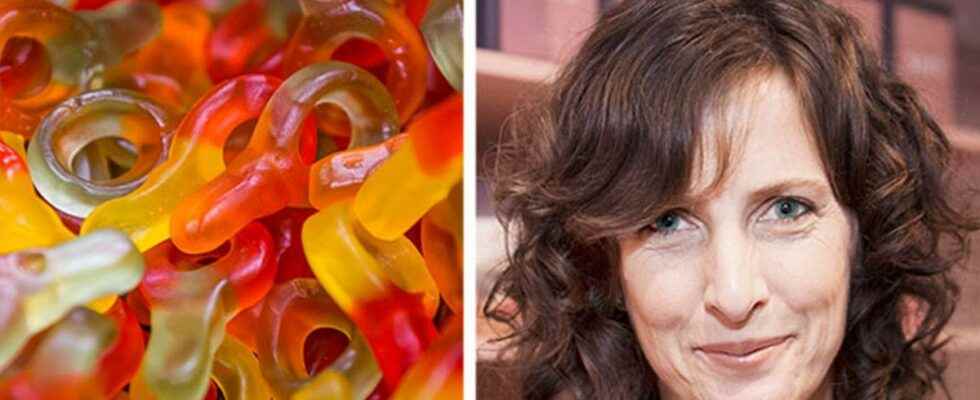Published: Just now
The book “Fake food” examines the increasingly popular vegetarian and vegan convenience foods.
A horror example the author brings up is the vegan cheese:
– It is as nutrient-poor as candy, says science journalist Ann Fernholm.
In the new book “Fake food” modern food is questioned, which includes many vegetarian and vegan options. The author behind the book is Ann Fernholm, a science journalist who also has a PhD in molecular biology.
One product she has reviewed is vegan cheese – which is about as nutrient-poor as candy. Something she has also talked about in TV4’s Nyhetsmorgon.
– The vegan cheese is made from coconut fat, starch, water, dyes and aromas. Coconut fat and starch are basically completely nutrient-free, there are no vitamins in it. It’s just calories. It is as nutrient-poor as candy, says Ann Fernholm.
“Our brain needs iron”
Fernholm also questions the artificial meat substitute that is taking up more and more space on grocery store shelves.
– Small children and women of childbearing age have a very large need for iron in relation to how much they eat. For them, it can be difficult to get all the iron they need from vegan or vegetarian foods. Our brain needs iron to function well. If you have a deficiency, it will affect mental health and also the ability to concentrate, says Ann Fernholm.
– If we are to replace the red meat with something else, we must make sure that it is a rich source of iron, otherwise more people will have an iron deficiency.
But since many people already eat relatively nutrient-poor food, Ann Fernholm believes that vegan semi-finished products worsen an already problematic situation.
– We already eat too much added sugar and wheat flour, so we can’t replace one of the most nutrient-dense foods we have with even more nutrient-poor food, it’s not possible, says Ann Fernholm.
“Additives” in ultra-processed food
Vegetarian food can be healthy, but just because the food is plant-based doesn’t mean it always is. Rather, the food needs to be processed in the right way.
Ann Fernholm highlights a new thesis that has been done at Chalmers Institute of Technology. It shows that vegan food often contains high levels of substances that inhibit iron and zinc absorption.
– In cereals, beans, peas, and other legumes there is something called “antinutrients”. These are substances in food that bind very strongly to minerals such as iron and zinc. This makes it difficult for our body to absorb the minerals. If you soak, sprout or ferment grains and legumes, many of the antinutrients disappear. Then iron and zinc become available to the body, she says.
According to Ann Fernholm, vegetarian food is good when all the raw materials have been preserved. In her book, she has defined the word “extracts” as referring to everything that disappears from the ultra-processed food.
– The industry often only uses the protein from the bean or pea. The companies remove the rest. Vegetarian food is useful if you eat the whole raw material. When you remove large parts, beneficial vitamins and antioxidants disappear. It becomes like a void in the food, says Ann Fernholm.
Not checking closely
Ann Fernholm that people are not as careful when it comes to seeing where the vegetarian options come from.
– If you look at many of these vegan products, it says that it was prepared in Sweden. This does not mean that the raw materials come from Sweden. What you should look for is whether the raw materials are really grown in Sweden. It must be written on the packaging if they come from Swedish agriculture, she says.
– We want to buy Swedish meat, but we don’t think so with the vegetarian manufacturers. The fact that they write in capital letters “prepared in Sweden” is likely to deceive us. It’s a foul.
